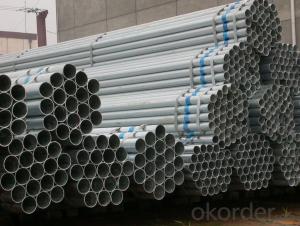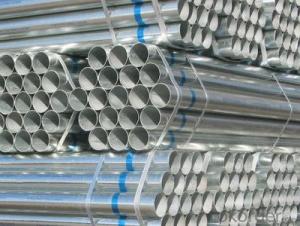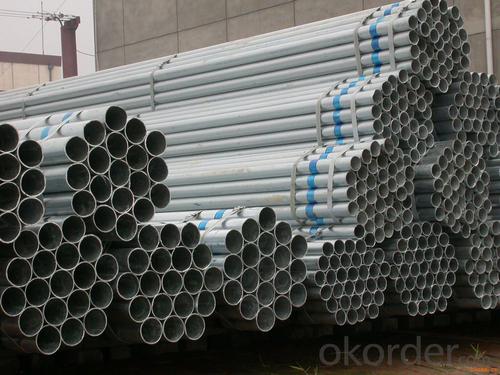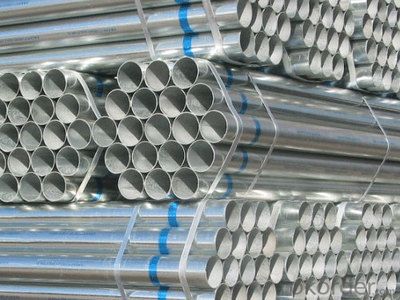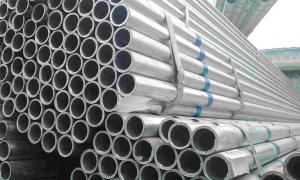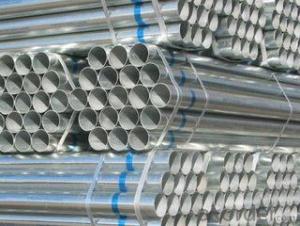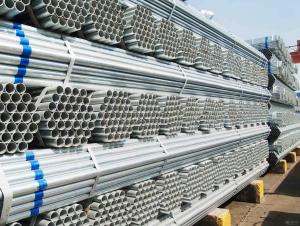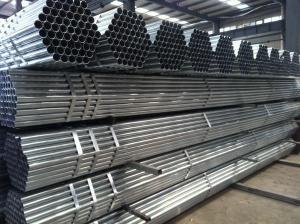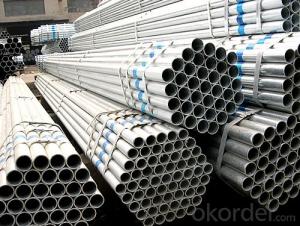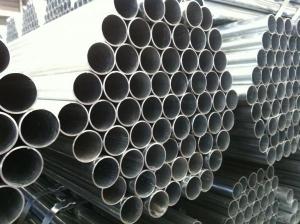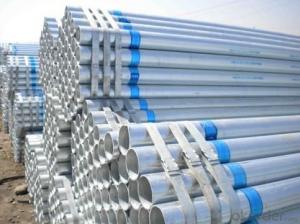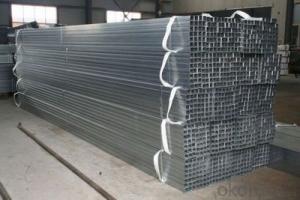Q195-1235 Galvanized Pipe /Steel Tube Greenhouse
- Loading Port:
- Tianjin
- Payment Terms:
- TT OR LC
- Min Order Qty:
- 25 m.t.
- Supply Capability:
- 1000 m.t./month
OKorder Service Pledge
OKorder Financial Service
You Might Also Like
Q195-1235 Galvanized Pipe /Steel Tube Greenhouse
Quick Information
Steel pipe &coupler scaffolding is a traditional scaffolding system that mainly use in decoration of the outside wall.
It's use together with the different angles couplers that use to connect the steel pipes to set up the whole system.
Specification
ommodity | Top supply ms steel price and galvanized steel pipe made in china | |
Size | Diameter | 21.3-610mm |
Thickness | 2.8--10.3mm | |
Length | 1--12m | |
Shape | Round. Square. Rectangular. Or as your requirement. | |
Zinc Coat | More than 200g,as requirement. | |
Raw Materials | Q195.q235.q215.q345 as regiments | |
Min quantity | 5 tons, more quantity price will be lower. | |
Surface Treatment | Galvanized | |
package | in bulk or plastic packaging, as clients demand; | |
Delivery time | 15-20days after receiving your deposit or L/C. | |
Payment | TT or 100% Irrevocable LC at sight | |
Application:
Galvanized steel pipe/tube.
Hot dip galvanized steel pipe/tube.
Seamless steep pipe/tube.
ERW welded steel pipe/tube.
Hot-rolled steel pipe/tube.
Spiral steel pipe/tube.
Carbon steel pipe/tube.
C Z U shape steel/profiles.
Steel coils/galvanized steel coils/sheet/strips
Picture:
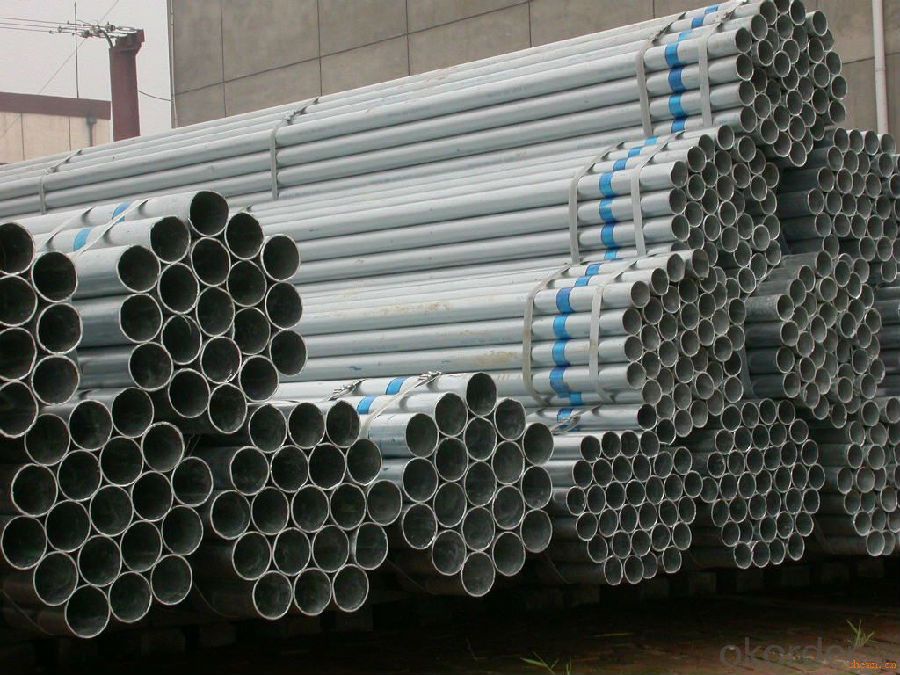
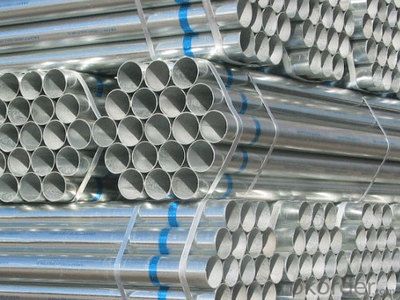
- Q: How are steel pipes used in tunnel construction?
- Steel pipes are commonly used in tunnel construction for various purposes such as drainage, ventilation, and support. These pipes are installed to facilitate the removal of water from the tunnel, ensuring a dry working environment. They also serve as conduits for supplying fresh air and removing exhaust fumes. Additionally, steel pipes are utilized as structural supports, providing stability and reinforcement to the tunnel walls and ceilings.
- Q: How are steel pipes used in the power generation industry?
- Steel pipes are used in the power generation industry for a variety of applications, including transporting fluids such as steam, water, and fuel gases, as well as for structural support in power plants and for cooling systems.
- Q: Can galvanized steel tubes simmer?
- Galvanized steel pipe can simmer bending.Is a set of bending bending bending die, no matter what kind of equipment, most are used in pipe, mainly used for oil and gas, infusion, more plays an important role in aircraft and engine.
- Q: What's the difference between round and round tubes?
- Round steel is solid and round tubes are hollow
- Q: How are steel pipes used in the manufacturing of aerospace components?
- Steel pipes are used in the manufacturing of aerospace components for various purposes such as supporting structures, fuel systems, hydraulic and pneumatic systems, and exhaust systems. They provide strength, durability, and resistance to extreme temperatures and pressure, making them suitable for critical applications in the aerospace industry.
- Q: Can steel pipes be used in high-pressure applications?
- Yes, steel pipes can be used in high-pressure applications. Steel pipes have high tensile strength and are able to withstand high pressure and temperature conditions, making them suitable for various industrial applications such as oil and gas pipelines, power plants, and chemical processing plants.
- Q: What is the role of steel pipes in HVAC systems?
- Steel pipes are essential components in HVAC systems as they are used to transport hot or cold water, steam, and air throughout the system. They provide a reliable and durable conduit for the distribution of heating, ventilation, and air conditioning, ensuring efficient and effective operation of the system.
- Q: Can steel pipes be used for sewage systems?
- Yes, steel pipes can be used for sewage systems. Steel pipes are commonly used in sewage systems due to their durability, strength, and resistance to corrosion. They are particularly suitable for high-pressure applications and can withstand the harsh conditions often found in sewage systems. Additionally, steel pipes are relatively easy to install and maintain, making them a popular choice for sewage infrastructure projects.
- Q: Can steel pipes be used for conveying hazardous materials?
- Yes, steel pipes can be used for conveying hazardous materials due to their high strength and resistance to corrosion.
- Q: How do you repair a damaged steel pipe?
- To repair a damaged steel pipe, you can follow a few steps. First, identify the extent of the damage, such as cracks or holes. Next, clean the damaged area using a wire brush or sandpaper to remove any rust, debris, or old paint. Then, apply a suitable epoxy or sealing compound to seal the crack or hole. For larger damages, welding or brazing may be necessary. Finally, ensure the repaired area is dry and properly cured before testing the pipe for leaks or further issues.
Send your message to us
Q195-1235 Galvanized Pipe /Steel Tube Greenhouse
- Loading Port:
- Tianjin
- Payment Terms:
- TT OR LC
- Min Order Qty:
- 25 m.t.
- Supply Capability:
- 1000 m.t./month
OKorder Service Pledge
OKorder Financial Service
Similar products
Hot products
Hot Searches
Related keywords
